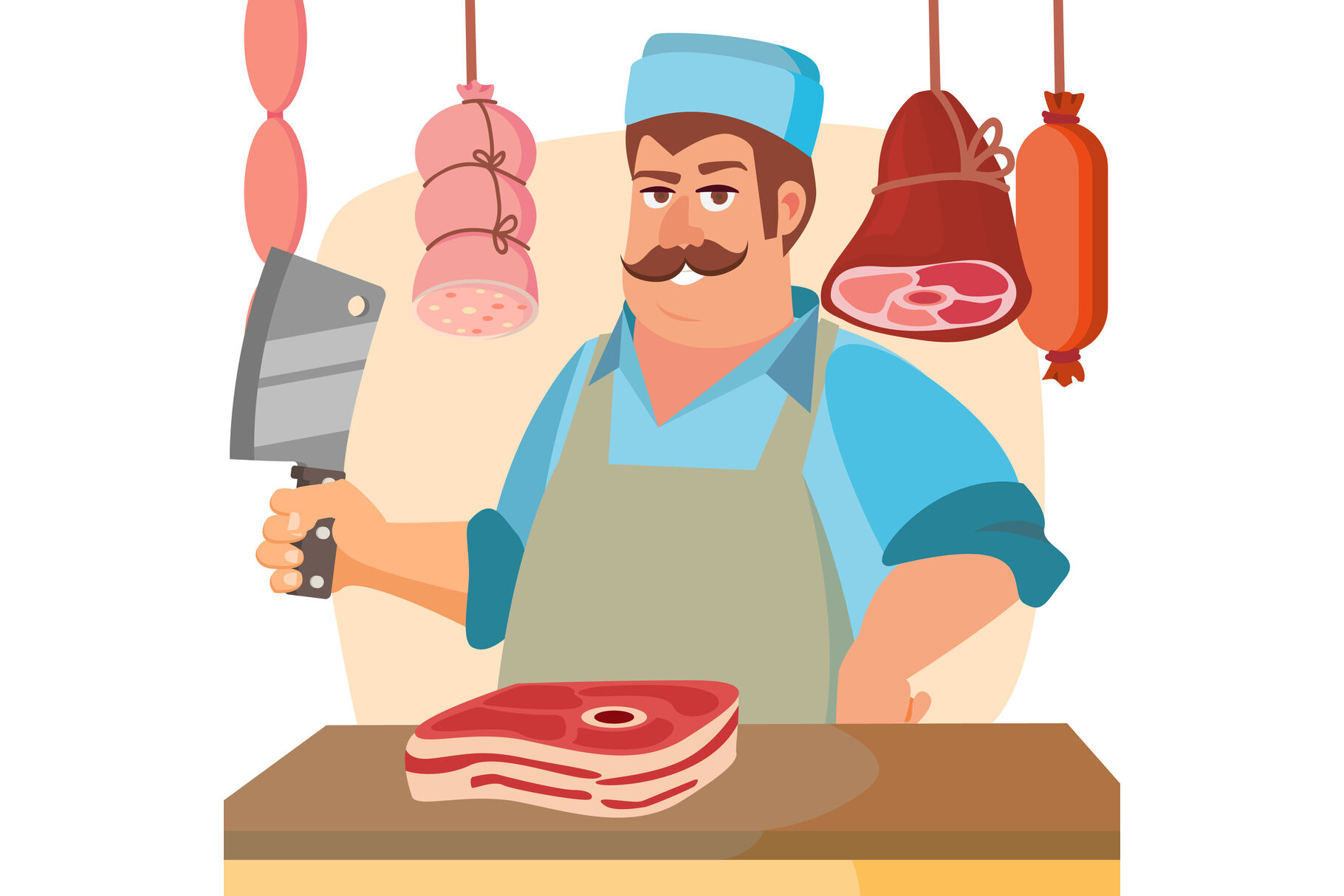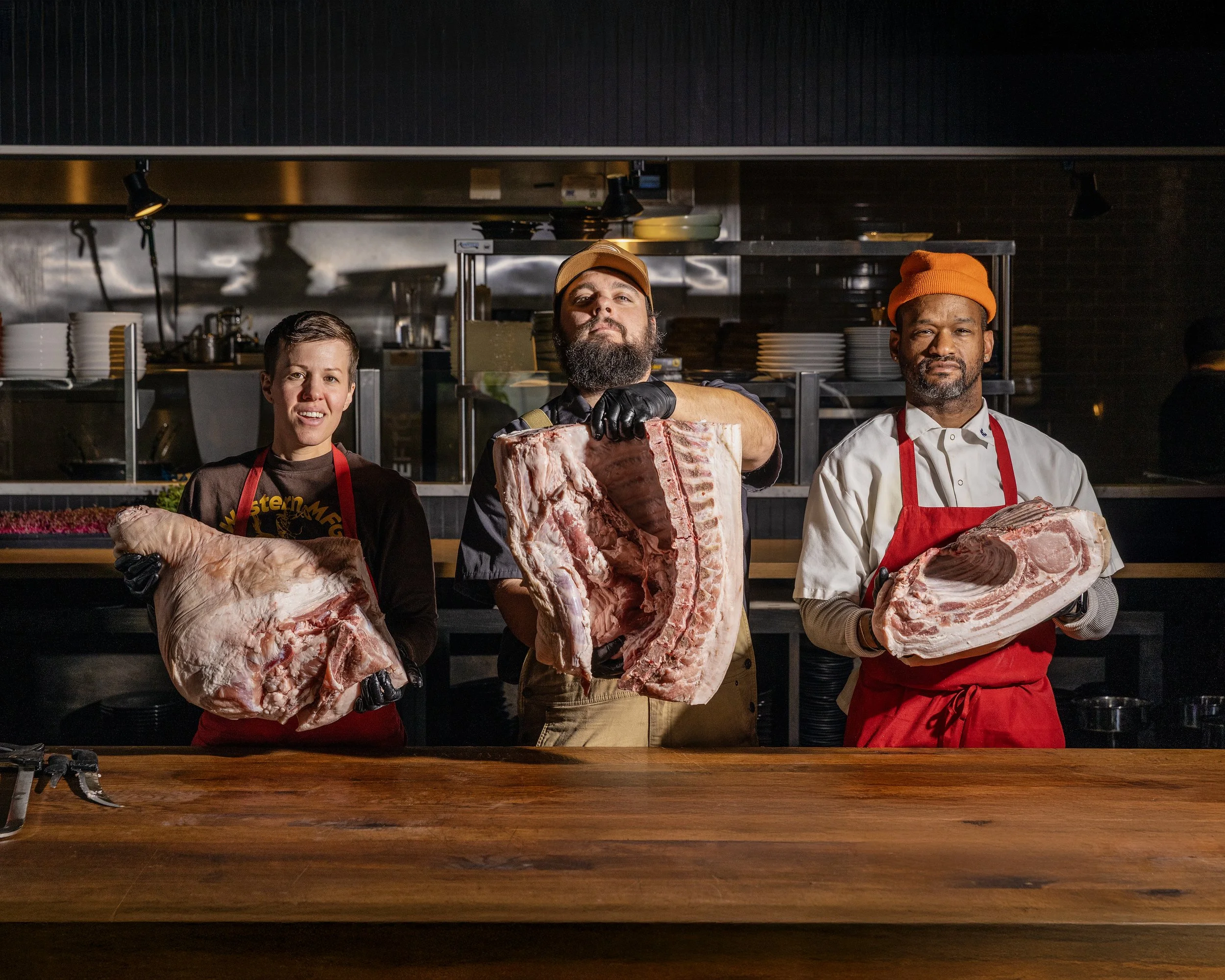The way meat stores near me support access to high-quality local meats.
Everything About Meat Markets: Recognizing Their Duty in Supporting Neighborhood Farmers
Meat markets serve a critical function in neighborhood economies by linking the void between customers and farmers. They provide a straight sales channel that boosts the quality and top quality of meat items. Beyond convenience, these markets play a considerable function in promoting sustainable farming and supporting the resources of neighborhood farmers. Nonetheless, the effects of this connection extend additionally than one could anticipate, questioning about sourcing methods and consumer choices.
The Significance of Meat Markets in Local Economies
Often overlooked, meat markets play an important role in strengthening neighborhood economies by supporting farmers and creating jobs. These establishments work as essential middlemans, offering a platform for regional manufacturers to offer their items straight to consumers. By purchasing locally sourced meat, customers contribute to the sustainability of close-by farms, guaranteeing their stability and promoting agricultural diversity.
In addition, meat markets create job opportunity, ranging from sales and butchers staff to management and logistics duties. This job development boosts the neighborhood economy, promoting a feeling of neighborhood as homeowners involve with their community services.
Furthermore, meat markets commonly draw in customers that look for premium, fresh items, which can bring about increased foot traffic and sales for surrounding businesses. In general, the presence of meat markets can substantially improve neighborhood economic health and wellness, fortifying connections in between farming and area well-being while sustaining the livelihoods of farmers.

Linking Farmers and Consumers: How Meat Markets Operate
Meat markets work as vital hubs that connect local farmers directly with consumers, facilitating a streamlined supply chain that profits both celebrations. By sourcing items from close-by farms, these markets guarantee that consumers get fresh, high-quality meat while sustaining neighborhood agriculture. The operation of meat markets includes establishing relationships with farmers, frequently enabling them to display their items and share their farming techniques.
Consequently, customers access to a diverse selection of meats that mirror regional tastes and preferences. Openness is an essential aspect of these markets, as customers are typically supplied with info regarding the sourcing and handling of the meat. This straight link promotes depend on and commitment in between customers and farmers, enhancing area ties. Furthermore, meat markets frequently take part in advertising tasks, such as farm-to-table events, which even more enrich the consumer's experience and understanding of local farming techniques.
Advertising Lasting Farming Practices
Advertising lasting agriculture practices is vital for the future of food manufacturing and environmental wellness. By concentrating on honest farming strategies, motivating biodiversity, and supporting for seasonal and regional sourcing, the agricultural industry can significantly lower its eco-friendly footprint. These practices not just support the community yet also cultivate a much healthier relationship in between farmers and customers.

Honest Farming Strategies
An expanding number of farmers are adopting honest farming methods to improve sustainability and decrease ecological impact. These methods concentrate on accountable land management, reducing using chemical plant foods and chemicals, and welcoming organic techniques. Techniques such as crop turning, cover chopping, and agroforestry not just enhance dirt wellness yet additionally advertise biodiversity. Additionally, farmers are increasingly prioritizing animal welfare by giving pasture-based systems and reducing arrest practices. By focusing on local resources and neighborhood interaction, honest farming cultivates a durable agricultural system. This change not only profits the setting however likewise enhances the connection between consumers and farmers, encouraging educated investing in choices that support sustainable techniques. Inevitably, these methods serve to develop an extra sustainable future for farming.

Biodiversity and Ecological Community Wellness
While several farming techniques have actually traditionally focused on return over ecological balance, an expanding recognition of biodiversity's value has actually emerged amongst customers and farmers alike. Biodiversity enhances environment resilience, supporting soil wellness, bug control, and pollination. By incorporating varied crops and livestock, farmers can develop extra steady ecosystems that lower reliance on chemical inputs and improve general productivity. Lasting farming practices that advertise biodiversity not just protect natural habitats yet additionally add to the long-term practicality of farming. Meat markets play an essential function in this paradigm change by supporting for neighborhood items that prioritize ecological health and wellness. By picking to resource from ranches that accept biodiversity, customers can sustain techniques that assure a sustainable future for farming and the atmosphere.
Seasonal and Neighborhood Sourcing
Local and seasonal sourcing not just enhances the quality of food but also supports lasting agriculture practices that profit both customers and farmers. By focusing on neighborhood meat markets, customers can attach straight with farmers, fostering a sense of neighborhood and trust. This design minimizes the carbon footprint associated with long-distance transport, promoting ecological sustainability. Farmers advantage from even more steady incomes and a reliable market for their products, which urges accountable farming methods. Furthermore, seasonal sourcing motivates varied farming methods, permitting farmers to turn crops and animals, therefore keeping soil wellness and biodiversity. On the whole, this technique produces a much more resistant food system that aligns with the worths of area, high quality, and sustainability support, strengthening the vital web link between consumers and local farming systems.
The Role of Openness in Sourcing Meat
What variables add to customer trust fund in meat items? Transparency in sourcing is a vital aspect. Consumers progressively inquire concerning where their meat comes from, including the farms and techniques included in raising the pets. Meat markets that prioritize transparency commonly show clear labeling, describing the resource and manufacturing approaches made use of. This visibility promotes confidence and allows customers to make informed options.
In addition, clear techniques can consist of ranch gos to, collaborations with regional farmers, and sharing stories regarding the pets and their settings. As consumers end up being much more educated regarding food sourcing, they tend to prefer meat items from vendors who loom with details. This need for transparency not only enhances consumer depend on however likewise motivates meat markets to establish honest connections with local farmers. Inevitably, transparency supports a cycle of liability, profiting both consumers and manufacturers in the meat industry.
Sustaining Pet Well-being Via Citizen Sourcing
Sustaining gourmet meats online animal welfare via local sourcing depend upon the fostering of ethical farming practices. By prioritizing openness in sourcing, consumers can make educated choices that show their values. Additionally, area interaction efforts cultivate a stronger link in between farmers and consumers, boosting the total commitment to gentle treatment of pets.
Honest Farming Practices
While customers increasingly focus on honest considerations in their food choices, local sourcing offers a sensible course to supporting animal welfare. Ethical farming techniques highlight gentle therapy of pets, guaranteeing they have ample space, correct nutrition, and accessibility to exterior environments. Local ranches commonly adhere to these criteria, as they are much more responsible to their neighborhoods and customers. By selecting to resource meat locally, customers can support ranches that prioritize lasting and gentle practices over industrialized techniques, which often compromise animal well-being. This connection promotes a deeper understanding of food manufacturing and encourages accountable consumption. Eventually, neighborhood sourcing encourages consumers to make educated options that align with their worths pertaining to moral treatment of pets in the food industry.
Openness in Sourcing
Just how can transparency in sourcing enhance consumer rely on neighborhood meat markets? By providing clear information regarding the origins of their products, neighborhood meat markets promote a sense of liability and integrity. When consumers understand the sourcing methods, including the treatment of pets and farming approaches, they are more probable to really feel confident in their purchasing choices. This transparency permits customers to align their worths with business they support, understanding they are adding to moral animal welfare and lasting techniques. In addition, neighborhood meat markets can display partnerships with close-by ranches, stressing neighborhood support and reinforcing a positive partnership between customers and producers. Inevitably, openness in sourcing not just builds trust yet likewise motivates enlightened selections among customers.
Community Interaction Campaigns
What duty do area interaction initiatives play in advertising animal well-being with neighborhood sourcing? These initiatives considerably boost recognition and understanding of honest farming methods among consumers. By cultivating links in between local farmers and community members, meat markets can highlight the relevance of humane treatment of animals. Educational workshops and ranch scenic tours enable consumers to witness firsthand the problems under which pets are elevated, enhancing the worth of regional sourcing. Additionally, community events, such as farm-to-table suppers, highlight the partnership between pet welfare and sustainable techniques. With these interactions, consumers develop trust fund in neighborhood meat markets, motivating them to support moral sourcing and fostering a culture of liable usage that prioritizes pet well-being in the area.
Wellness Benefits of Picking Local Meat Products
Selecting neighborhood meat items uses many wellness advantages that can substantially improve overall health (bagley's meat market). One substantial benefit is the lowered time between farm and table, which typically results in fresher meat with higher nutritional value. Neighborhood meats have a tendency to be totally free from dangerous chemicals and ingredients commonly found in factory-farmed options, adding to over here a cleaner diet
Additionally, regional farmers typically prioritize humane and sustainable methods, leading to healthier animals that generate better-quality meat. Grass-fed and pasture-raised animals, often discovered in neighborhood markets, generally have higher degrees of omega-3 fatty acids and lower levels of saturated fats compared to their feedlot equivalents.
Sustaining neighborhood meat items fosters neighborhood wellness by ensuring that consumers have accessibility to safe and properly sourced food. By picking neighborhood, people not only nourish themselves but also add to the well-being of their area and environment.
Making Informed Selections at the Meat Market
When traversing a meat market, recognizing the key factors that affect quality and sourcing can empower consumers to make informed options. Shoppers ought to focus on local products, which typically originate from ranches with sustainable techniques. Identifying tags such as "grass-fed" or "natural" can also guide choices, as these typically suggest higher welfare criteria and nutritional benefits.
Engaging with the butcher is necessary; well-informed team can give understandings into the sourcing of their meats and recommend cuts that match numerous cooking approaches. Customers are motivated to ask concerning the ranch's practices, including animal therapy and feed.
Additionally, examining the meat's color and structure can disclose quality and high quality. Lean cuts ought to appear damp and intense, while fatty cuts must have a marbled look. By combining these techniques, customers can confidently choose meats that align with their worths and assistance local agriculture.
Regularly Asked Questions
What Kinds of Meat Are A Lot Of Frequently Offered at Regional Meat Markets?
Regional meat markets generally use a selection of meats, consisting of beef, pork, chicken, and lamb. These facilities often feature specialty cuts, sausages, and in your area sourced products, satisfying diverse cooking choices and consumer needs.
Just How Can I Find a Meat Market Near My Place?
To discover a meat market close by, one can utilize online maps, online search engine, or regional directories his response - meat market delivery. Additionally, asking neighbors or pals for referrals typically produces beneficial understandings into the very best neighborhood options available
Exist Seasonal Variations in Meat Schedule at Meat Markets?
Seasonal variants in meat accessibility at meat markets commonly take place, affected by variables such as neighborhood farming practices, pet breeding cycles, and seasonal demand. This can impact the types and amounts of meat offered throughout the year.
Do Meat Markets Deal Unique Promos or Price Cuts for Bulk Purchases?
Meat markets commonly provide unique promos and price cuts for bulk acquisitions. This method encourages consumers to purchase bigger amounts while allowing the marketplaces to take care of stock successfully, benefiting both customers and the company financially.
Can I Request Certain Cuts of Meat at the marketplace?
Yes, customers can usually ask for details cuts of meat at the market. Lots of butchers want to suit unique orders, making certain that clients obtain the precise cuts they desire, customized to their preferences.
By sourcing products from close-by ranches, these markets ensure that consumers obtain fresh, top notch meat while supporting regional agriculture. By focusing on local meat markets, customers can attach directly with farmers, promoting a feeling of neighborhood and count on. Exactly how can transparency in sourcing enhance customer trust fund in neighborhood meat markets? Regional meat markets commonly use a selection of meats, consisting of beef, lamb, chicken, and pork. Seasonal variants in meat schedule at meat markets usually take place, influenced by elements such as local farming practices, animal breeding cycles, and seasonal need.